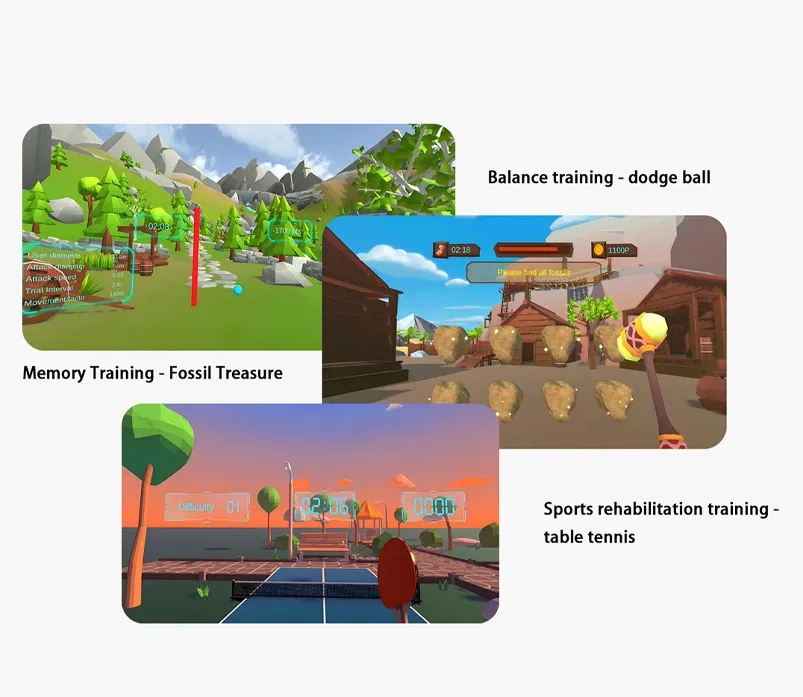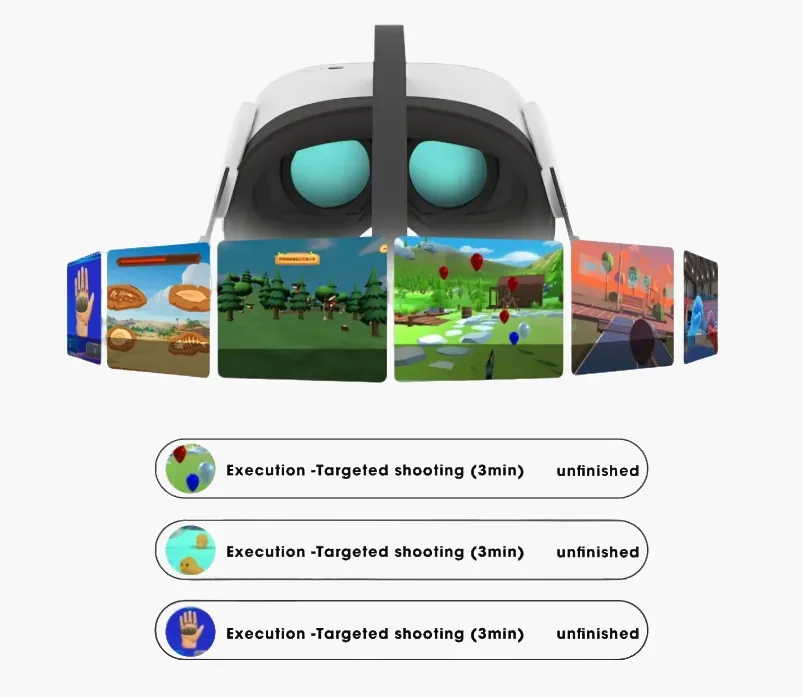
Progressive analyses suggests that VR technology strategy can profoundly improve the states of clients managing cognitive decline. By shifting them to relaxing atmospheres, VR offers a exceptional avenue for mental involvement, mood regulation, and group participation. Diverse studies have revealed that VR therapy can minimize turmoil, apprehension, and despair in dementia patients individuals while also refining their recall, awareness, and interaction abilities.
- VR facilitates people with dementia to revisit cherished memories through collaborative emulations.
- In addition, it can furnish a protected and encouraging space for group interaction, building a impression of union and affiliation.
- Clinicians consider that VR therapy has the capability to remodel dementia assistance by yielding new and novel means to handle the challenging difficulties faced by patients managing this syndrome.
Electronic Health Solutions for Mental Boosting in Alzheimer's
Developing digital solutions are indicating success in the sphere of intellectual growth for people experiencing cognitive Alzheimer's illness. These applications employ technical resources to energize brain operation and theoretically mitigate the evolution of the health issue. Game-based activities, personalized feedback, and brain-computer training are some models of methods being investigated in this developing domain. While examinations are being conducted, digital therapeutics present a supportive option for upgrading the quality of those managing the Alzheimer's condition.Virtual Environments as New Strategies in Alzheimer's Healing
In relation to persons battling neurodegenerative Alzheimer's type, the incremental decline of brain power and thinking skills can severely compromise their capability to associate with the nearby context. This crippling state often elicits in withdrawal, displeasure, and a diminished individuality. Up-to-date progresses in virtual reality technology present a pioneering chance to mitigate these problems by developing immersive realities that can enhance the brain and renew cognitive function.
Computer-generated surroundings created specifically for those with Alzheimer's can send them in acquainted venues, such as their childhood abode or a well-liked park area, reminiscing positive memories and lowering anxiety. Through interactive practices, these virtual domains can also stimulate cognitive abilities like remembrance, mindfulness, and judgment.
The prospects of virtual reality in Alzheimer's support are enormous. Early evaluations have demonstrated positive results, with participants experiencing improvements in cognitive ability, mood, and overall quality of life. As this technique advances, it holds the key to revolutionizing the way we approach Alzheimer's disease, providing a new pathway for support and enabling.
Computer-Aided Reminiscence for Alzheimer's Victims
Reminiscence therapy is a popular technique used to elevate cognitive function and emotional stability in individuals with Alzheimer's disease. This traditional form of therapy involves motivating patients to share past experiences, often through interchange. However, a pioneering approach is emerging: VR-mediated reminiscence therapy.
This immersive innovation utilizes virtual reality headsets to place patients in convincing environments that arouse memories from their past. By reliving these digital reconstructions, individuals with Alzheimer's can relate with their past in a powerful way.
VR-Based Approaches for Memory and Cognitive Enhancement in Dementia
Virtual reality (VR) is emerging as a novel tool in the fight against dementia, granting innovative ways to activate memory and cognition. By generating immersive settings, VR can assist individuals with dementia relive memories, engage in meaningful activities, and augment cognitive powers. Studies have revealed that VR interventions can generate noticeable improvements in memory recall, attention, and navigational awareness. Moreover, VR provides a risk-free and favorable space for individuals with dementia to communicate, reducing feelings of isolation and fear.
- Besides, VR can be adapted to individual needs and preferences, granting increased levels of communication.
- Even with the capabilities of VR, supplementary research is needed to fully understand its long-term benefits in dementia care.
Memory Restoration and Social Reinforcement through VR in Alzheimer's
Computer-generated immersion technology is emerging as a state-of-the-art tool in the area of neurodegenerative conditions. By simulating captivating and social spaces, VR has the potential to stimulate memories, enhance social interaction, and enhance the overall quality of life for persons struggling with Alzheimer's. Arguably the most remarkable aspects of VR is its ability to shift users to familiar spots and memories from their past. Whether it's a jaunt inside a childhood home or a simulation of a beloved holiday, these virtual escapades can recall happy memories and reinforce cognitive capacity. Furthermore, VR can support social interaction by associating individuals with others who share similar experiences. This can be particularly beneficial for people with Alzheimer's who may deal with hardship with traditional social engagement. By hosting a safe and interesting virtual space, VR can diminish feelings of isolation and VR loneliness, which are common among patients living with Alzheimer's. Overall, VR holds immense potential for revolutionizing the lives of persons with Alzheimer's by restoring memories, reestablishing connections, and improving their quality of life. As technology persists in mature, we can expect even more revolutionary applications of VR in the field of dementia care.Gamifying Cognitive Training: Using VR to Manage Alzheimer's Conditions
Immersive reality systems is rapidly emerging as a innovative tool in the realm of cognitive training, particularly for clients dealing with Alzheimer's disease. By immersing patients in interactive and engaging virtual environments, VR-based interventions can energize cognitive functions such as memory, attention, and problem-solving. These games habitually incorporate elements of storytelling, exploration, and social interaction, making the training process significantly appealing. Studies have shown that VR-based cognitive training can lead to substantial improvements in cognitive performance, likely delaying the progression of Alzheimer's symptoms. Moreover, VR provides a safe and controlled environment for patients to practice new skills and grow their confidence.
- Game-centric tactics in VR training can make it exceptionally compelling and amusing for users with cognitive difficulties.
- VR simulations can offer authentic scenarios that push and engage cognitive functions.
- Personalized VR experiences can cater to unique demands and approaches.
A Simulated Second Chance: Exploring the Benefits of VR Environments for Individuals with Dementia
Alluring simulated worlds offer a novel and advantageous avenue for patients with cognitive decline. These approaches can reproduce familiar environments, allowing those affected by cognitive decline to recapture cherished memories and foster a sense of familiarity. By combating the burdens of dementia, VR spaces have the option to enhance quality of life for both users and their guardians.
- Assessments indicate that VR interventions can effectively impact cognitive function, affective well-being, and even sensory abilities in individuals with dementia.
- Moreover, VR enables a safe and supervised environment for participation, reducing the risk of discomfort.
- In addition, VR can encourage social associations by allowing individuals with dementia to participate in online activities with others.
Utilizing Virtual Reality for Early Alzheimer's Identification and Management
Alzheimer disorder emerges a complex puzzle, often persisting unseen in its early stages. Yet, virtual reality (VR) is becoming prominent as a cutting-edge tool for prompt recognition. Through immersive environments, VR can analyze cognitive operation in ways that traditional methods fail to. This possibility allows for early treatment strategies, potentially retarding disease progression and optimizing the quality of life for users with Alzheimer's.
- Immersive virtual tests evaluate cognitive functions like recall and focus in protected settings.
- Bespoke VR applications facilitate interactive mental activity for patients.
- VR worlds offer empathetic environments for interaction among those affected by Alzheimer's.
Facilitating Dementia Communication and Interaction Through VR
{In the realm of dementia care, innovative technologies are emerging to advance the lives of users with memory loss diseases. Virtual reality (VR) is one such mechanism that holds immense promise for fostering communication and interaction improvements in dementia via VR. By creating immersive and engaging virtual environments, VR can animate cognitive function, reduce behavioral issues, and ultimately improve the overall well-being of subjects managing dementia.
VR experiences focused on dementia patient engagement can range from reflection therapy sessions that guide clients through remembered environments, to interactive games that promote social interaction and cognitive challenge. Furthermore, VR has the potential to connect clients facing dementia with social networks, regardless of physical isolation, fostering a sense of connection.
- VR can empower in reducing agitation and anxiety by providing a calming and absorbing environment.
- Examinations have shown that VR interventions can lead to improvements in cognitive function, mood, and social interaction in participants with dementia.
- As technology advances in progress, we can expect even more innovative and successful
